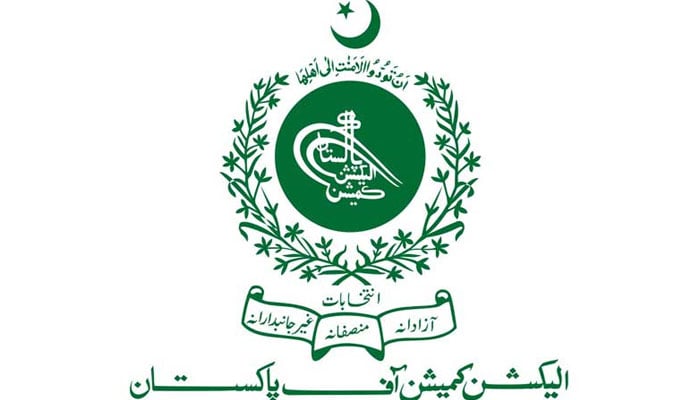ECP unveils third strategic plan to improve electoral process
ISLAMABAD: The Election Commission of Pakistan on Wednesday unveiled its third strategic plan-2019-2023, envisaging sweeping measures, relating to improvement in electoral processes and internal capacity besides steps for independence, impartiality, integrity and transparency.
The plan was formally unveiled here at a simple but decently-organised ceremony at the Election Commission Secretariat. The first strategic pillar is the legal framework, pertaining to constitutional, legal provisions as well as subordinate legislation that govern various aspects of electoral management in Pakistan.
During the period of the third strategic plan, the Election Commission aims at contribution towards improved electoral laws for national and local elections, which means review of the Elections Act 2017 and local government acts, proposing amendments to harmonise local government acts with the Elections Act, 2017 and also to propose amendments to improve the act.
As per the second strategic pillar, the Election Commission plans to enhance the stakeholders engagement in electoral processes and to institutionalise transparency and enhance public access to information in electoral management.
With timelines, the Election Commission will focus on institutional development, as there is consensus among the internal and external stakeholders about the need for growth in the commission's overall institutional capability, including infrastructure and human resource management, which includes expansion of its resource base as well as better resource management, including human, infrastructure and financial resources.
The commission also aspires to become a learning organisation that promotes the exchange of knowledge and experiences among electoral practitioners and stakeholders at the national and international levels.
The fourth strategic pillar relates to training and capacity development by strengthening the capacity of ECP employees by providing quality training and learning opportunities at national and international levels.
The Elections Operations form the fifth strategic pillar, dealing with all phases of electoral process, from the enlistment of political parties and nomination of candidates to the announcement of results, as the commission conducts one of the largest single-day elections in the world and with increase in number of registered voters, this challenge continues to grow at every electoral cycle.
The total voters count increased from 86.19 million in May 2013 to 105.9 million in July 2018, showing an increase of over 22 per cent in just five years. It is therefore critical that the processes underpinning the electoral operations, tasks, functions and services that the commission is mandated to perform under this pillar must become more efficient and effective. It aims at improvement in political parties’ enlistment process and scrutiny of campaign expenditure, election expenses and statements of assets and liabilities.
The sixth strategic pillar is about ensuring financial autonomy and improving the commission's financial management system and to optimise resource mobilisation for improving the commission's infrastructure, institutional capacity and operations.
Voter registration and participation form the seventh strategic pillar, as it aims at ensuring that eligible citizens, especially women and socially excluded groups get CNICs and are registered voters besides improving the quality of electoral rolls.
-
 ‘Narcissist’ Andrew Still Feels ‘invincible’ After Exile
‘Narcissist’ Andrew Still Feels ‘invincible’ After Exile -
 Shamed Andrew ‘mental State’ Under Scrutiny Amid Difficult Time
Shamed Andrew ‘mental State’ Under Scrutiny Amid Difficult Time -
 Bad Bunny's Super Bowl Halftime Show: What Time Will He Perform Tonight?
Bad Bunny's Super Bowl Halftime Show: What Time Will He Perform Tonight? -
 Where Is Super Bowl 2026 Taking Place? Everything To Know About The NFL Showdown
Where Is Super Bowl 2026 Taking Place? Everything To Know About The NFL Showdown -
 Chris Pratt Explains Why He And Katherine Schwarzenegger Did Premarital Counseling
Chris Pratt Explains Why He And Katherine Schwarzenegger Did Premarital Counseling -
 Drake 'turns Down' Chance To Hit Back At Kendrick Lamar At Super Bowl
Drake 'turns Down' Chance To Hit Back At Kendrick Lamar At Super Bowl -
 Sarah Ferguson Had A ‘psychosexual Network’ With Jeffrey Epstein
Sarah Ferguson Had A ‘psychosexual Network’ With Jeffrey Epstein -
 Miranda Kerr Shares The One Wellness Practice She Does With Her Kids
Miranda Kerr Shares The One Wellness Practice She Does With Her Kids -
 Czech Republic Supports Social Media Ban For Under-15
Czech Republic Supports Social Media Ban For Under-15 -
 Khloe Kardashian Shares How She And Her Sisters Handle Money Between Themselves
Khloe Kardashian Shares How She And Her Sisters Handle Money Between Themselves -
 Prince William Ready To End 'shielding' Of ‘disgraced’ Andrew Amid Epstein Scandal
Prince William Ready To End 'shielding' Of ‘disgraced’ Andrew Amid Epstein Scandal -
 Chris Hemsworth Hailed By Halle Berry For Sweet Gesture
Chris Hemsworth Hailed By Halle Berry For Sweet Gesture -
 Blac Chyna Reveals Her New Approach To Love, Healing After Recent Heartbreak
Blac Chyna Reveals Her New Approach To Love, Healing After Recent Heartbreak -
 Royal Family's Approach To Deal With Andrew Finally Revealed
Royal Family's Approach To Deal With Andrew Finally Revealed -
 Super Bowl Weekend Deals Blow To 'Melania' Documentary's Box Office
Super Bowl Weekend Deals Blow To 'Melania' Documentary's Box Office -
 Meghan Markle Shares Glitzy Clips From Fifteen Percent Pledge Gala
Meghan Markle Shares Glitzy Clips From Fifteen Percent Pledge Gala




